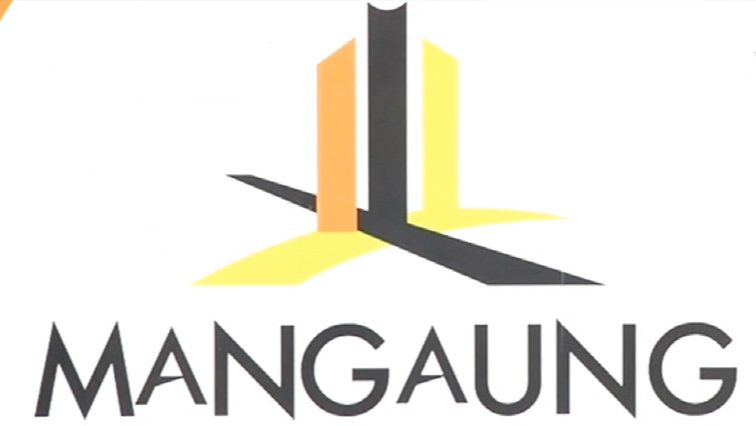South Africa has eight metropolitan municipalities. Mangaung in the Free State was declared metro municipality after the 2011 local elections.
Some important towns and cities within South Africa’s eighth metropolitan city include Bloemfontein, Botshabelo, Mangaung, and Thaba Nchu.
The economy is strongly driven by the government sector, which has seen the fastest growth in the last five years as a result of increased government programmes in livelihoods improvement interventions.
The finance sector is the second-fastest-growing sector due to very active estate and construction activities. Small businesses have a major role to play in the Mangaung economy, in terms of employment creation, income generation, and output growth.
Population
Mangaung has a population of 747 431, of which 83,3% are black African, 11,0% are white, 5,0% are coloured and 0.4% are classified as Indian/ Asian. The gender ratio is 51.5% female and 48.5% male.
Between 2001 and 2011, the metro registered a population growth of 1.47%.
Languages spoken
The main language profile of the metro includes Sesotho (51.9%), Afrikaans (15.8%), Setswana (12.3%), IsiXhosa (9.6%), and English (4.2%).
At present, this is the unemployment rate in the city:
Census 2011 data reveals also that 83.7% of the metro’s population live in ‘formal dwellings’; 60.7% were connected to a flush sewerage system; 78.9% has their refuse removed on a weekly basis; 46.1% had access to piped water inside their dwelling and 91.4% used electricity for lighting.
Towns
Bloemfontein, Botshabelo, Dewetsdorp, Mangaung, Soutpan, Thaba Nchu, Van Stadensrus, Wepener
Main economic sectors
Community services (35.3%), finance (26.8%), trade (16%), transport (11.8%), and manufacturing (3.5%).
Council’s seats
The current composition of the council’s 100-seats is: ANC 58, DA 27, EFF 9, AIC 2, VF PLUS 2, ANA 1, COPE 1
The mayor of the Mangaung metro municipality is Mrs Sarah Matawana Mlamleli.
Source: Municipalities.co.za
2018/ 2019 Auditor-General report
The Mangaung metro’s audit outcome stagnated on a qualified opinion for the third consecutive year. These outcomes were due to oversight not fulfilling their duties of holding the administration accountable.
The municipal manager failed to exercise his authority to hold senior managers accountable for poor performance. The metro received a qualified opinion in the areas of accrued leave pay, employee benefit obligation, revenue from traffic fines, and irregular expenditure.
The basis for qualification was a lack of preventative controls as similar qualification areas recurred from the previous year. There had been a level of instability in the finance unit since the resignation of the chief financial officer in 2018.
This resulted in the metro relying heavily on an individual that had been appointed on a temporary fixed-term contract for all matters related to the financial statements.
The practice of over-reliance on individuals was common in the metro and was evident in the areas of asset management, revenue management, and supply chain management. The risk of such over-reliance is illustrated by the relied-upon person in the supply chain management unit being transferred, resulting in increased instances of material non-compliance with procurement legislation included in the audit report, as well as the magnitude of irregular expenditure.
The over-reliance on certain individuals was a high risk for the metro as it disabled the basic principle of segregation of duties. It also hampered the institutionalisation of preventative internal controls, thus not ensuring the sustainability of the institution in the event of relied-upon officials resigning or being promoted.
Financial position
Since 2016, the metro’s financial position had deteriorated to such an extent that unspent conditional grants, namely the urban settlements development grant, the municipal disaster recovery grant, and the public transport network grant, were utilised to fund operational activities.
This had a negative impact on infrastructure development. The continued lapses in financial management resulted in suppliers not being paid within 30 days. In particular, the long-outstanding amounts owed to the water board prompted regular interruptions of the water supply, which was an infringement of citizens’ basic human needs.
Water issues
In addition, water losses of R186,7 million (31%) were suffered mainly due to technical losses; burst water pipes and leaks indicating dilapidated infrastructure and a lack of maintenance; as well as faulty meters and unmetered sites.
The metro had repeatedly recorded significant debt impairments due to the lack of collection of consumers’ outstanding accounts, which put a strain on honouring commitments and paying employees’ salaries.
Leadership’s lack of accountability for sound financial management had a negative impact on the metro’s financial sustainability and resulted in overspending of the budget.
Unauthorised expenditure
The metro reported unauthorised expenditure of R1,4 billion due to overspending on salary cost, overtime, the unbudgeted settlement agreement with the water board, and the under-budgeting of non-cash items.
The metro’s internal audit unit was relatively effective. They issued relevant reports, which were approved by the audit committee.
However, management failed to implement any of those resolutions. As a result, we raised similar findings to those raised by the internal auditors in our audit report, including those relating to predetermined objectives and compliance with legislation.
The lack of implementation of the internal audit recommendations was an indication of the disregard for clean administration, despite the costs paid by the metro to maintain the internal audit unit as well as the audit committee.
Despite the training and awareness sessions conducted by the South African Local Government Association, treasuries, and ourselves for municipal public accounts committee members, they still struggled to understand and/or fully discharge their responsibilities.
Due to the lack of knowledge and understanding of their role, no tangible work was performed by the committee, which was sometimes caused by limited reports submitted to the council sittings. This lack of action by the committee resulted in the accumulation of unauthorised expenditure of R2,3 billion, irregular expenditure of R949,5 million, and fruitless and wasteful expenditure of R78,7 million, without any individual being held accountable for the transgressions.
These conditions, together with downgrades by rating agencies, led to the provincial leadership placing the metro under administration after year-end.


